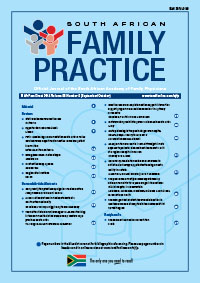Are there alternatives to the shortage of blood in South Africa?
Abstract
From time to time, the South African National Blood Service disseminates messages that the country’s blood stock levels are running very low. The average blood stock level varies from 4.6 days for group B to 10.7 days for group AB blood in nonemergency situations.1 However, with the December festive period approaching, these blood stock levels usually drop significantly as the demand for blood transfusion increases because of fatalities from motor vehicle accidents, traumatic injuries and obstetric haemorrhage. The solution to blood shortage is not simple in South Africa as potential blood donors dwindle, safety fears increase with regard to contracting bloodborne infections and healthcare workers constantly deal with the ethical dilemma of Jehovah’s Witnesses whose doctrine forbids them from accepting blood transfusions. Globally, the safety of blood transfusion has improved substantially since the 1980s, when human immunodeficiency virus (HIV) was discovered to be blood transmissible.2 However, one of the biggest challenges to blood safety in sub-Saharan Africa is being able to access safe and adequate quantities of blood and blood products.3
Section
Editorials
By submitting manuscripts to SAFP, authors of original articles are assigning copyright to the South African Academy of Family Physicians. Copyright of review articles are assigned to the Publisher, Medpharm Publications (Pty) Ltd, unless otherwise specified. Authors may use their own work after publication without written permission, provided they acknowledge the original source. Individuals and academic institutions may freely copy and distribute articles published in SAFP for educational and research purposes without obtaining permission.

